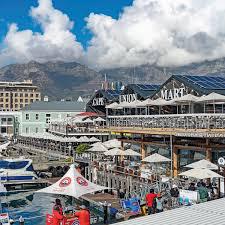Zimbabwe’s looted Wealth continue Flowing into South African Real Estate
Over the years, a significant outflow of capital from Zimbabwe has been directed into South Africa’s luxury real estate market. This trend has raised concerns about the origins of these funds and the role of South African authorities in either facilitating or curbing such financial inflow.
Zimbabwe has faced prolonged economic challenges, including hyperinflation, currency instability and political unrest. These conditions have led to a lack of confidence among the elite, prompting them to seek safer investment havens abroad. South Africa, with its relatively stable economy and proximity, has emerged as a preferred destination for these investments.
South Africa’s high-end property market, particularly in cities like Johannesburg and Cape Town, has seen a surge in investments from Zimbabwean nationals. For instance, developments such as the Sandton 2.1.9.6 project in Johannesburg have reportedly attracted significant interest from Zimbabwean buyers, leading to colloquial references like “Little Harare” for certain upscale neighborhoods. This influx has not only driven up property prices but has also sparked debates about the legitimacy of the funds used for these acquisitions.
South Africa’s position as a recipient of these funds places a responsibility on its authorities to scrutinise and address potential illicit financial activities. The country’s recent history, notably the findings of the Zondo Commission into state capture, has highlighted the detrimental impact of corruption on governance and public trust. The commission’s revelations underscored the necessity for robust mechanisms to prevent and address corruption.
The persistent issue of Zimbabwean public funds being illicitly invested in South Africa underscores the need for decisive action. By implementing stringent measures and fostering international cooperation, South Africa should play a pivotal role in curbing the looting of Zimbabwe’s resources and promoting financial integrity within the region.
Engineer Jacob Kudzayi Mutisi



